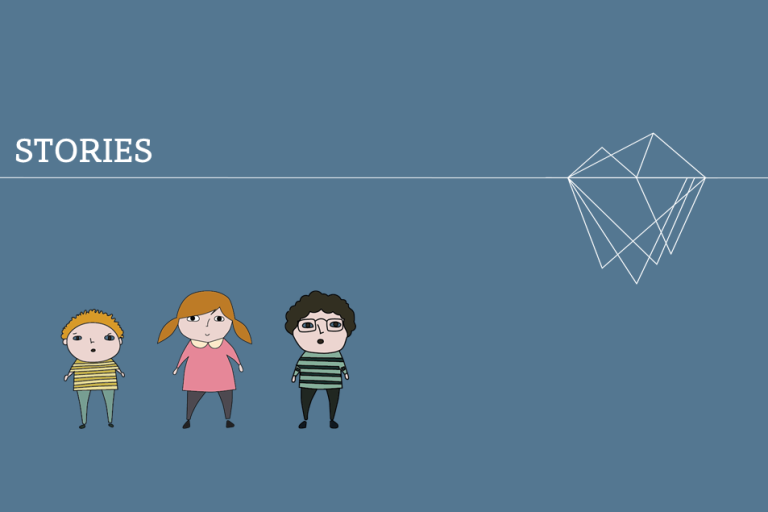Freedom to decide
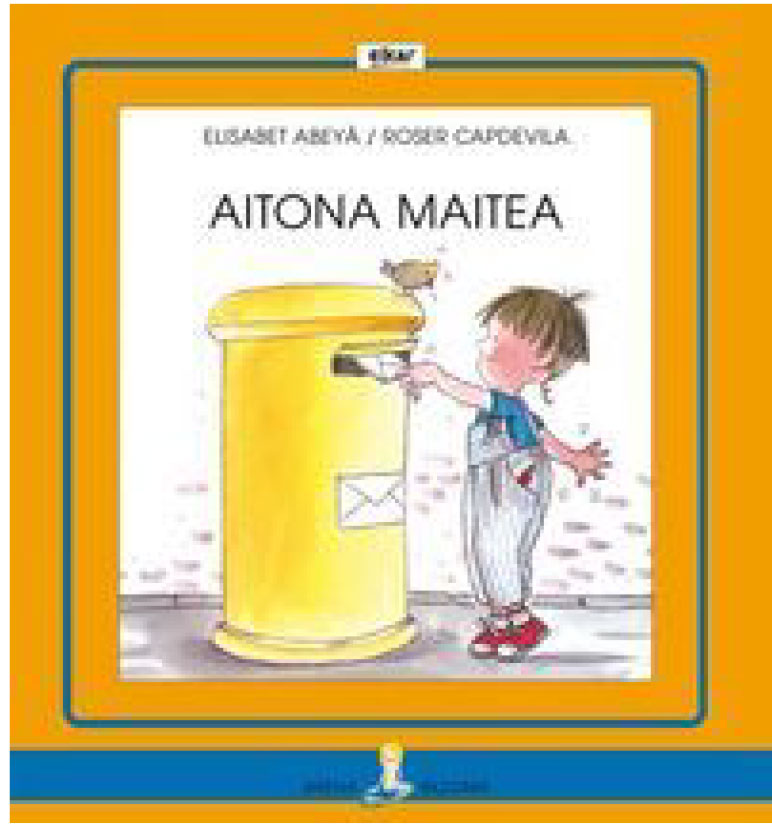
Title: Aitona maitea [Dear Granddad].
Author: Elisabet Abeyá.
Year: 2000
Place: Donostia-San Sebastián.
Published by: ELKARLANEAN, S.L.
Language: Basque.
Abstract: Joe has learned many things in his short life: he knows how to swim, how to ride a bike, wash himself, skip, do the washing up, tidy his room, read and even write. He has learned to do everything and tells his beloved granddad about it in a letter.
Gender equality indicators: breaking down gender stereotypes; freedom to decide.
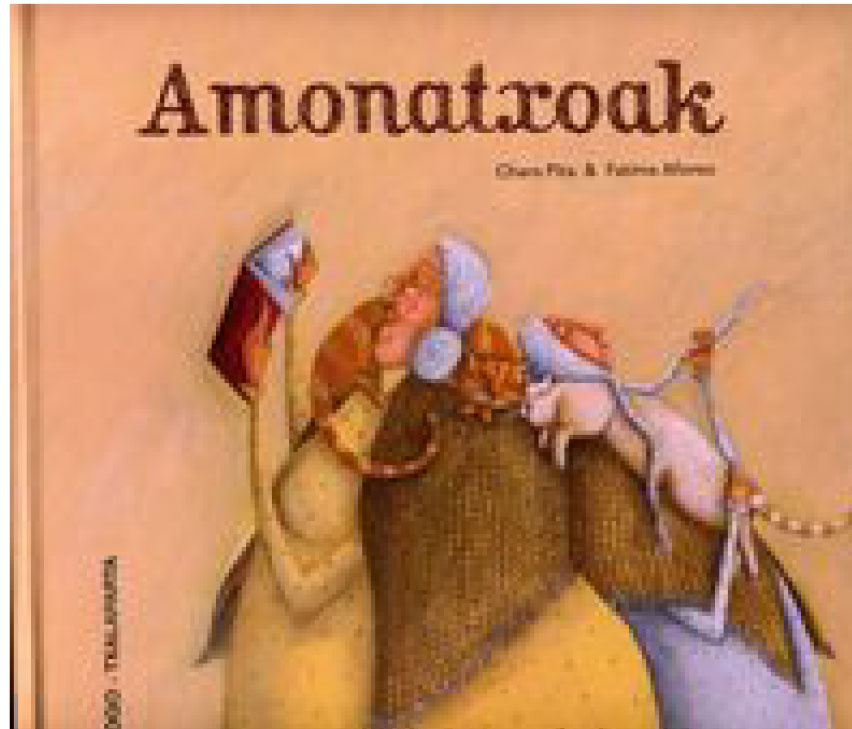
Title: Amonatxoak [Little old ladies].
Authors: Charo Pita; Fatima Afonso.
Year: 2010
Place: Tafalla.
Published by: Txalaparta.
Language: Basque.
Synopsis: Antea and Filipa are two old ladies who live together. Every day they drink soup made from water, but one day, Antea finds a bean in the kitchen. From the bean sprouts a giant plant that grows and grows right up to the sky. They follow it and find a mill that distributes food. The two old ladies help each other in this new adventure.
Gender equality indicators: breaking down gender stereotypes; care-related values; freedom to decide.
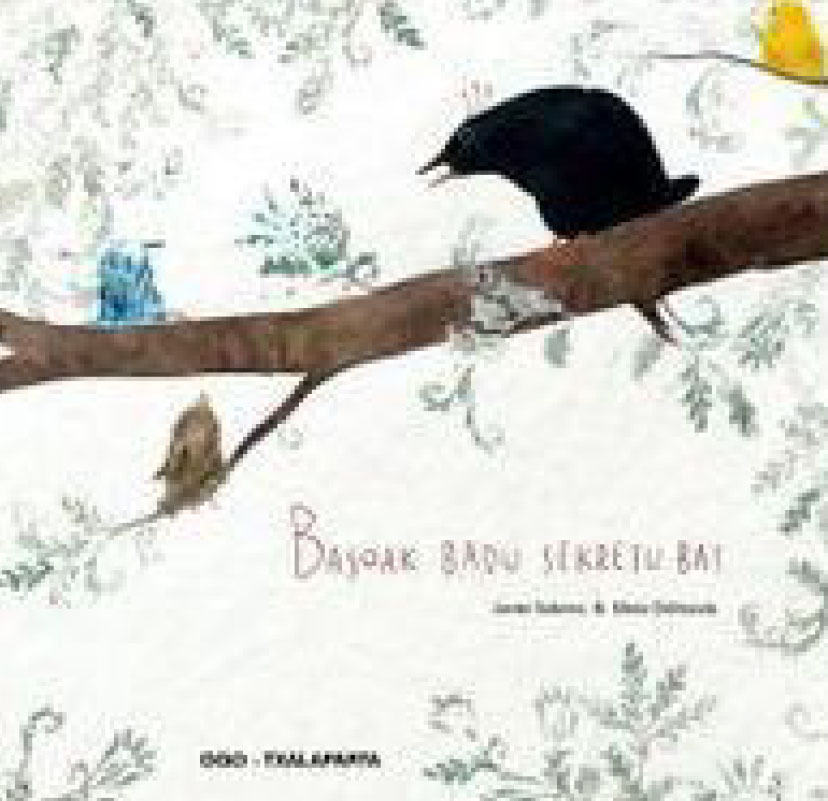
Title: Basoak badu sekretu bat [A woodland secret].
Authors: Javier Sobrino; Elena Odriozola.
Year: 2009
Place: Tafalla.
Published by: Txalaparta.
Language: Basque.
Synopsis: The story tells the tale of an impossible love. Nevertheless, the two lovers manage to overcome all the problems in their path. When Squirrel falls in love, she keeps it a secret for fear that Dormouse, Bear, Owl and Wolf won’t understand her.
Gender equality indicators: freedom to decide; romantic relationships.
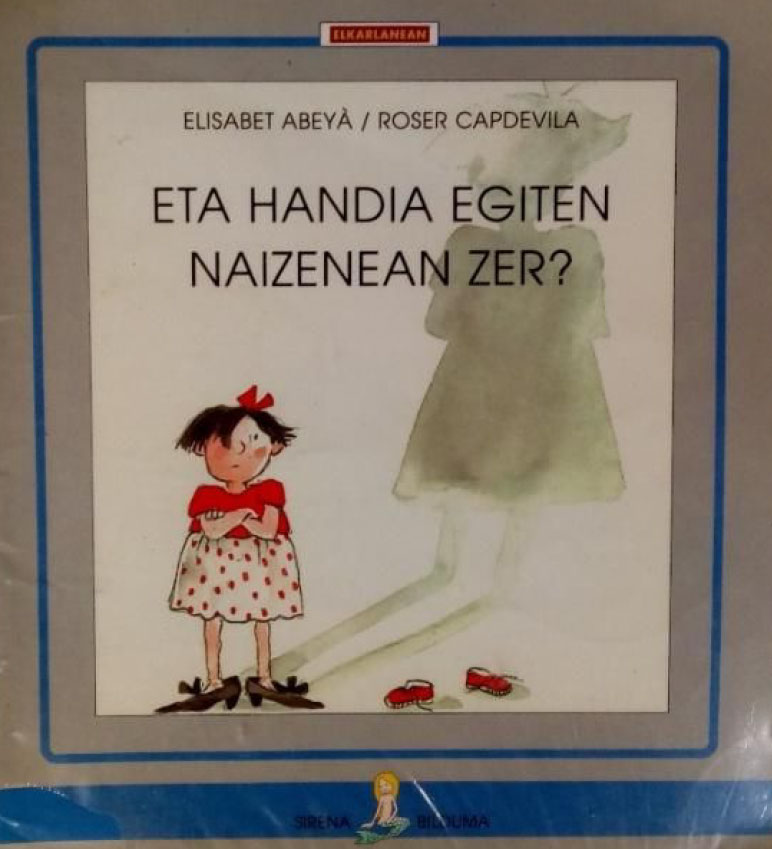
Title: Eta handia egiten naizenean zer? [What will I be when I grow up?].
Author: Elisabet Abeyá.
Year: 2000
Place: Donostia-San Sebastián.
Published by: ELKARLANEAN, S.L.
Language: Basque.
Synopsis: Aloña doesn’t know what she wants to be when she grows up. First she thinks about being a sailor; then she goes to get her hair cut and decides she wants to be a hairdresser. Next, she takes a taxi with her mum and says she wants to be a taxi driver; and so on throughout the day. In the evening, Aloña goes to a play. The main character is a witch and when Aloña says she wants to be a witch when she grows up, the witch tells her not to worry, she can be whatever she likes. Ever since then, Aloña doesn’t worry any more about what she’ll be when she grows up. She can play at being what she wants – there’ll be time enough to decide later.
Gender equality indicators: breaking down gender stereotypes; freedom to decide.
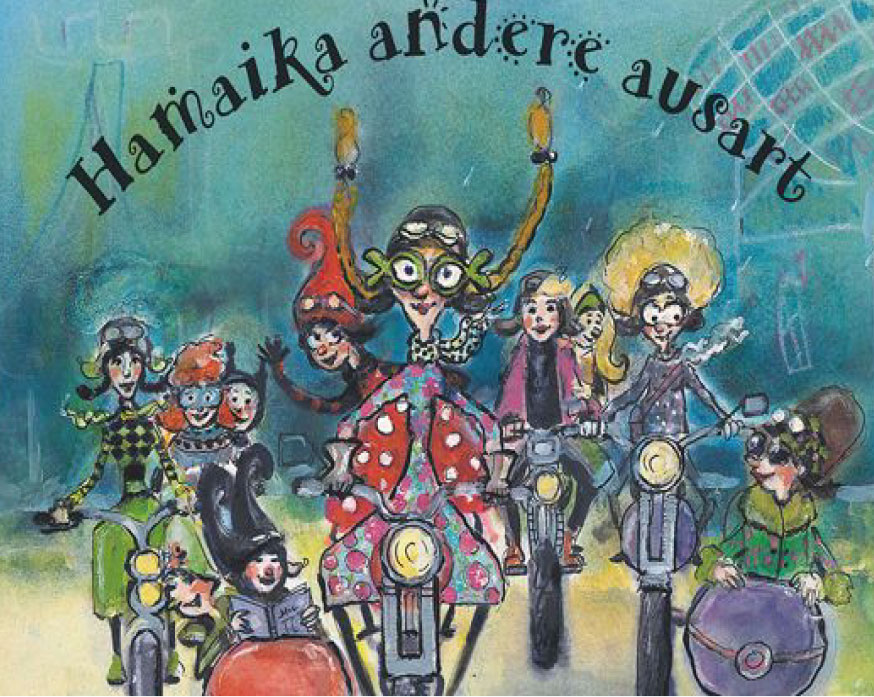
Title: Hamaika andere ausart [11 daring ladies].
Author: Oli Helle Thomassen.
Year: 2001
Place: Pontevedra.
Published by: Kalandraka.
Language: Basque.
Synopsis: The book recounts the travels of eleven daring women who journey to Al Ahmar, the desert, Moscow, Australia, etc. They are hardened adventurers, but at each stop in their journey, one stays behind.
Gender equality indicators: breaking down gender stereotypes; freedom to decide.
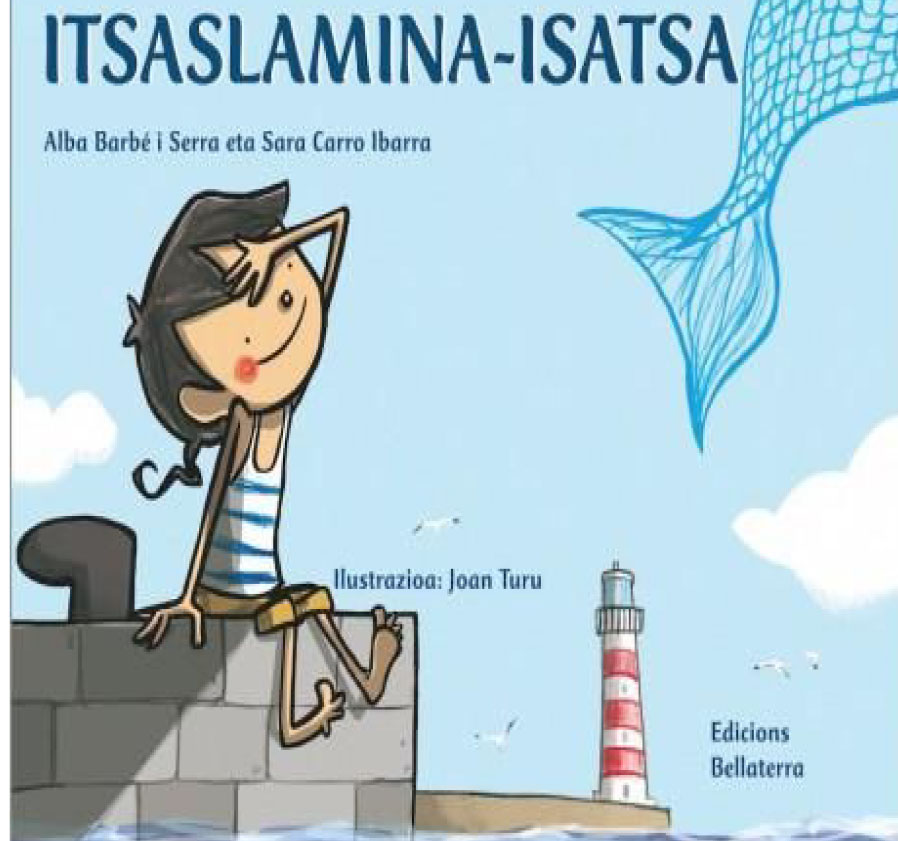
Title: Itsaslamina-isatsa [Mermaid’s tail].
Authors: Albar Barbé I Serra; Sara Carro Ibarra.
Año: 2016
Place: Barcelona.
Published by: Edicions Bellaterra.
Language: Basque.
Synopsis: Kai wears a mermaid’s tail outfit to a fancy dress party. Everyone laughs at him and Kai runs off, thinking he must have done something wrong. The next morning, he wakes up surrounded by mermaids and realises he has to make a decision. One thing or the other. Black or white. Fish or meat. Boy or girl. Human or merperson. As if there were only two alternatives! Can’t someone decide simply not to make a decision?
Gender equality indicators: breaking down gender stereotypes; freedom to decide.
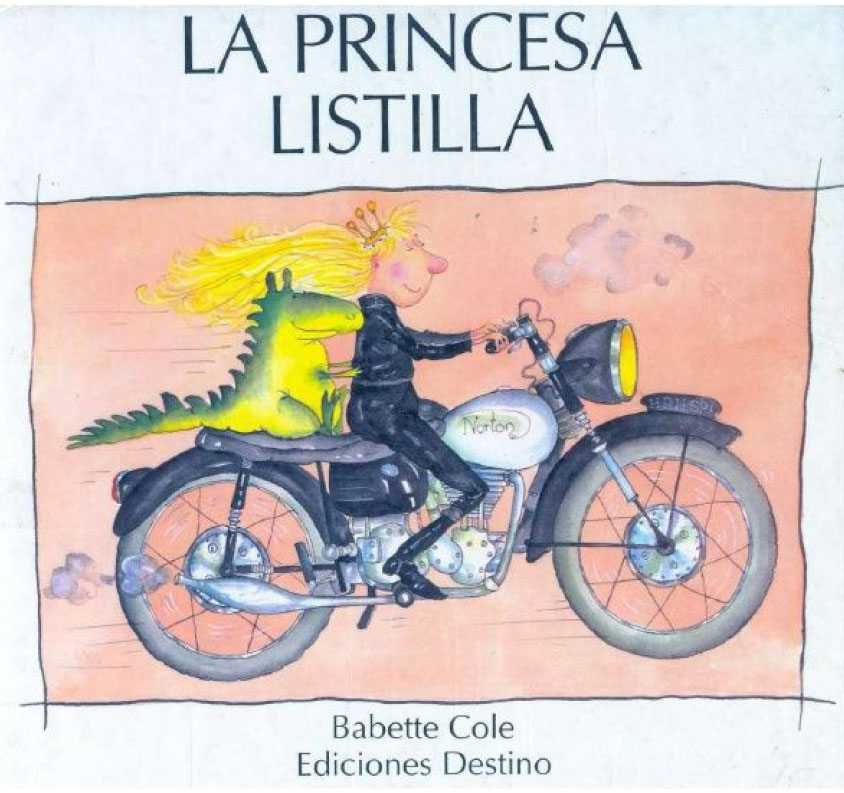
Title: La princesa listilla [Princess smartypants].
Author: Babette Cole.
Year: 1996
Place: Barcelona.
Published by: Ediciones Destino.
Language: Spanish.
Synopsis: Princess Smartypants doesn’t want to live the life her parents have planned out for her. She doesn’t want to marry a prince, she’d rather live in the castle with her pets. So, she sets all her suitors a challenge: she’ll only marry the one who can complete all the tasks she sets him. But it’s not easy. Only Prince Swashbuckle manages it … but the consequences are unexpected to say the least.
Gender equality indicators: breaking down gender stereotypes; freedom to decide; self-acceptance.
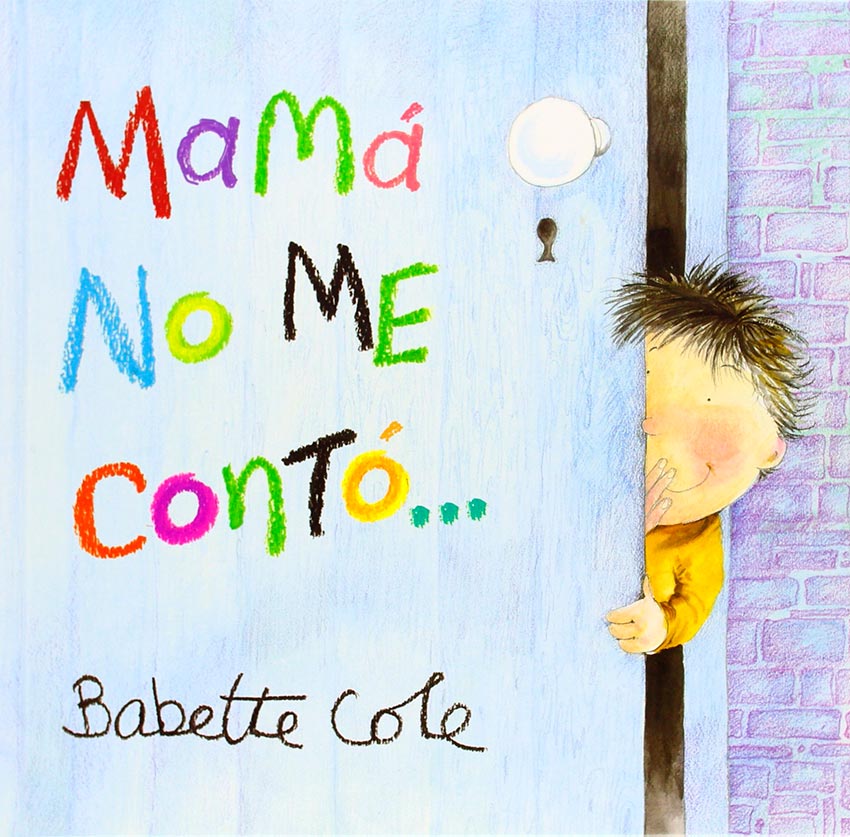
Title: Mamá no me contó… [Mummy Never Told Me…].
Author: Babette Cole.
Year: 2003
Place: Barcelona.
Published by: Ediciones Erres.
Language: Spanish.
Synopsis: This book is a wonderful opportunity for children to engage in an open-ended conversation with an adult, giving free reign to their innate curiosity. The book is full of questions that children love to ask their mothers, for example: Why do I have to go to school? Where do parents go when they go out at night? Why do adults sometime have hair growing out of their ears but not on top of their heads? There are also nods towards gender freedom.
Gender equality indicators: breaking down gender stereotypes; freedom to decide.
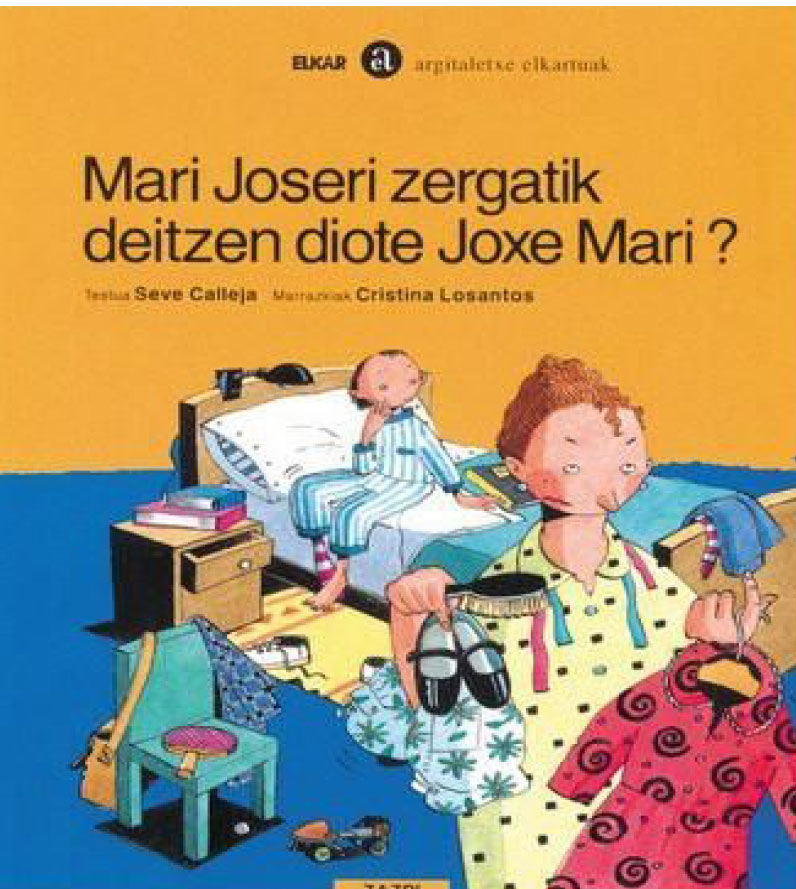
Title: Mari Joseri zergatik deitzen diote Joxe Mari? [Why do they call Mari Jose Joxe Mari?].
Author: Seve Calleja.
Year: 2010
Place: Donostia-San Sebastián.
Published by: Elkar.
Language: Basque.
Synopsis: Mari Jose is eight years old. She loves playing football. She doesn’t wear earrings and is happy and carefree – she doesn’t give a hoot what people say.
Gender equality indicators: breaking down gender stereotypes; freedom to decide; self-acceptance.
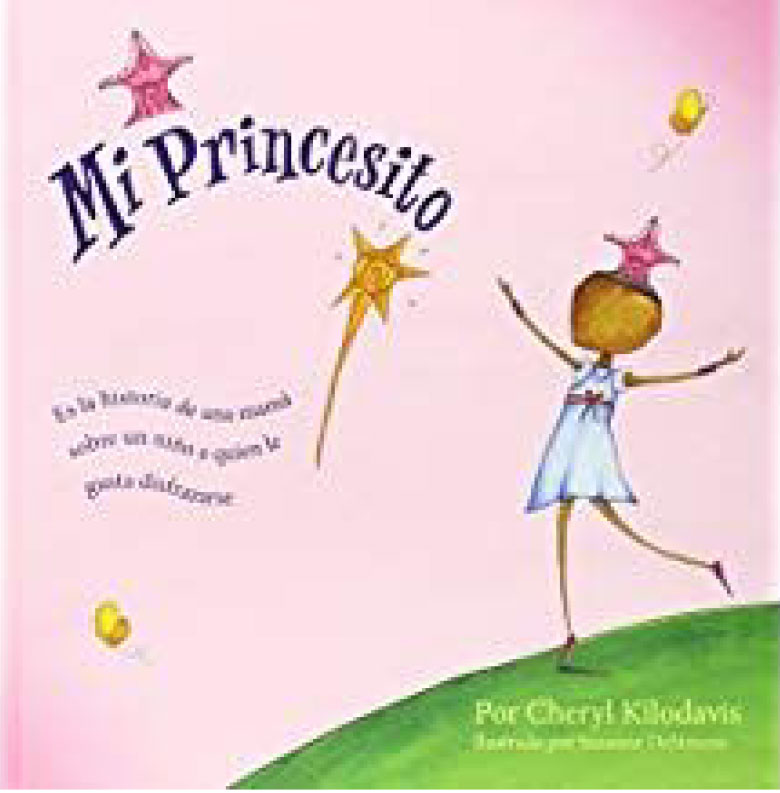
Title: Mi princesito [My princess boy].
Author: Cheryl Kilodavis.
Year: 2015
Place: Barcelona.
Published by: Edicions Bellaterra.
Language: Spanish.
Synopsis: A mother tells about the daily life of her young son – the things he likes, what he likes to do with his friends and family. It is an enriching tale of unconditional family love, of how happy it makes you when people love you just as you are.
Gender equality indicators: breaking down gender stereotypes; freedom to decide; self-acceptance.
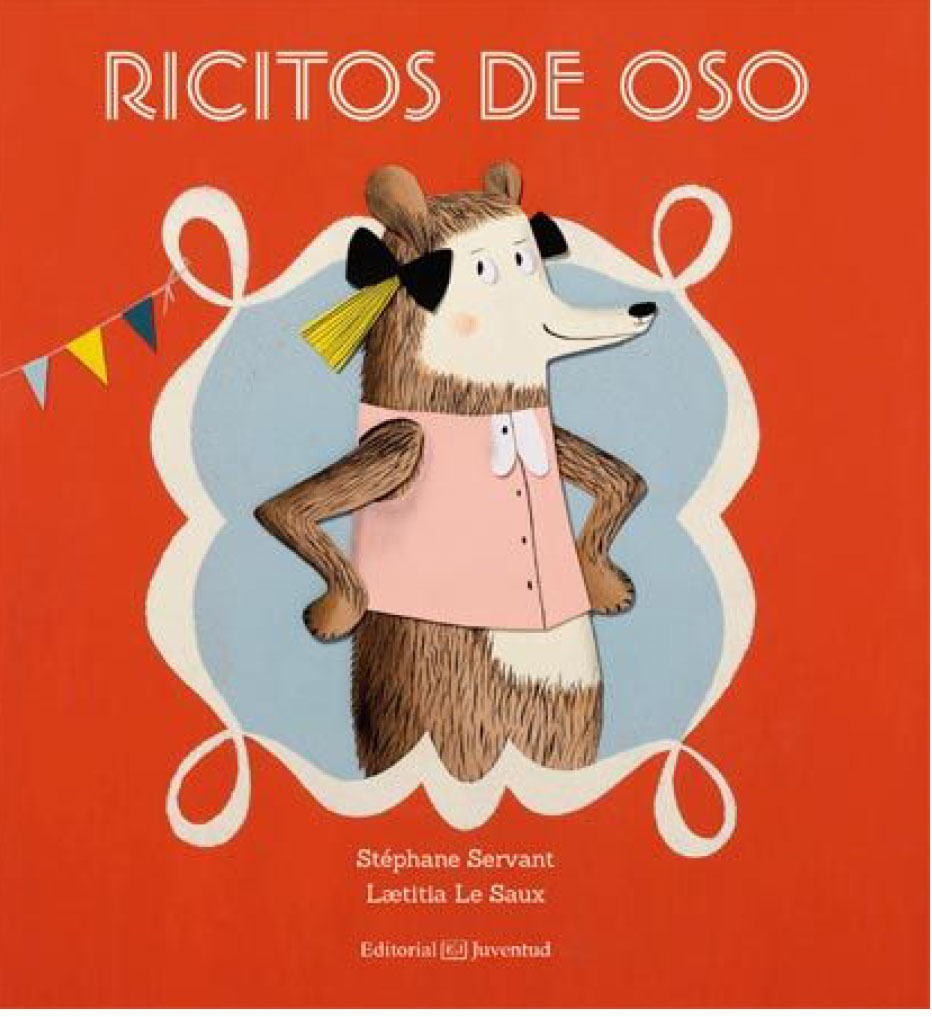
Title: Ricitos de oso [Bearylocks].
Authors: Stéphane Servant; Laetitia Le Saux.
Year: 2014
Place: Barcelona.
Published by: Editorial Juventud.
Language: Spanish.
Synopsis: Baby Bear wants to dress up as Goldilocks for the big festival, with a yellow ponytail and a pink skirt. Daddy Bear does not approve of his outfit. But Baby bear isn’t about to give up. He and Mummy Bear work together to convince Daddy Bear.
Gender equality indicators breaking down gender stereotypes; freedom to decide; self-acceptance.
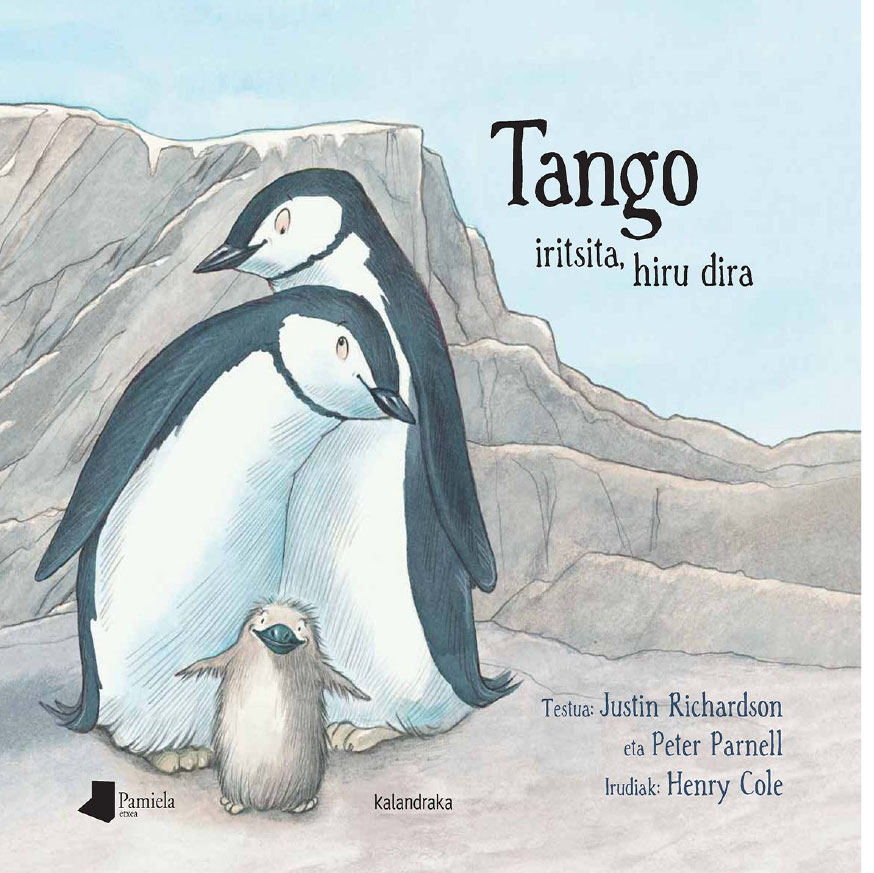
Title: Tango iritsita, hiru dira [And Tango makes three].
Authors: Justin Richardson; Peter Parnell; Henry Cole.
Year: 2016
Place: Arre.
Published by: Pamiela / Kalandraka.
Language: Basque.
Synopsis: Roy and Silo are two male penguins at Central Park Zoo in New York. They are inseparable, singing together and swimming together, etc. One day, the zookeeper realises they are trying to incubate a stone and puts a real egg in their nest instead. A little while later, out hatches Tango. Tango, Roy and Silo are very happy and love each other very much. The tale is inspired by a true story.
Gender equality indicators: care-related values; diversity of family models; freedom to decide.
- Categories:
- STORIES

